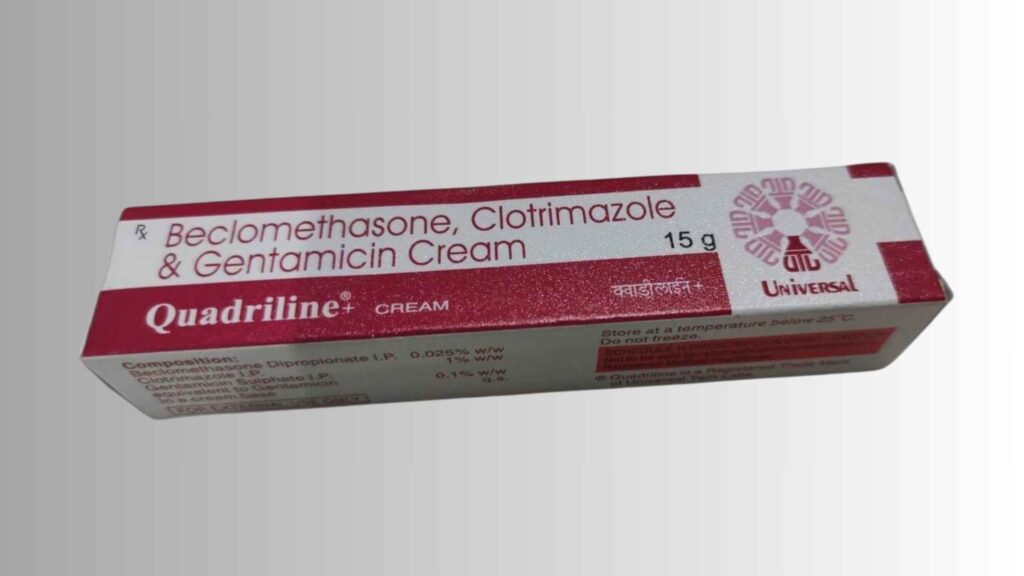When it comes to managing skin conditions like fungal infections and various dermatological issues, a combination cream like Betamethasone Clotrimazole Gentamicin is often prescribed. This multi-ingredient cream is renowned for its effectiveness in treating a wide range of skin problems. In this blog, we’ll explore the pros and cons of using Betamethasone Clotrimazole Gentamicin cream to help you make an informed decision about its use.
Also Read: Unlocking the Potential of Betaine HCL
Pros:
- Versatile Treatment: One of the significant advantages of Betamethasone Clotrimazole Gentamicin cream is its versatility. It is commonly used to treat various skin conditions, making it a go-to solution for dermatologists. Whether you’re dealing with fungal infections, bacterial skin issues, or inflammation, this cream can often provide relief.
- Effective Fungal Treatment: Clotrimazole, one of the active ingredients, is a powerful antifungal agent. It is highly effective in treating a range of fungal infections, including athlete’s foot, jock itch, and ringworm. The combination of clotrimazole with other ingredients enhances its efficacy.
- Anti-Inflammatory Properties: Betamethasone, a corticosteroid in the cream, is known for its anti-inflammatory properties. It helps to reduce redness, swelling, and itching associated with various skin conditions, such as eczema and psoriasis. This can provide much-needed relief from discomfort.
- Bacterial Infection Control: Gentamicin, another component, is an antibiotic that is effective against certain types of bacterial infections. This makes the cream a good option for conditions where a bacterial infection coexists with fungal or inflammatory issues, such as impetigo.
- Prescription-Strength Treatment: Betamethasone Clotrimazole Gentamicin cream is typically available by prescription, which means you’ll have access to a potent and carefully regulated medication. This ensures that it is used appropriately under the guidance of a healthcare professional.
Cons:
- Potential Side Effects: Like many medications, Betamethasone Clotrimazole Gentamicin cream has potential side effects. These can include skin thinning, burning, stinging, or itching at the application site. Prolonged use can lead to more severe side effects, making it essential to use the cream as prescribed.
- Risk of Overuse: Patients might be tempted to use the cream for a more extended period than recommended due to its effectiveness in providing relief. Overuse can lead to skin thinning and other adverse effects. It is crucial to adhere to your doctor’s instructions for use.
- Not Suitable for All Skin Issues: While this cream is versatile, it may not be suitable for all skin conditions. Your doctor will determine whether it is the right treatment for your specific issue. In some cases, other treatments may be more appropriate.
- Potential Allergies: Some individuals may be allergic to one or more of the components in the cream. If you experience an allergic reaction, such as rash, itching, or swelling, discontinue use and consult your healthcare provider.
- Not for Long-Term Use: This cream is not intended for long-term use, and its prolonged use should be avoided due to the risk of side effects. Doctors usually prescribe it for a specific duration, and it is essential to follow their guidance.
Also Read: Ligma Disease: Symptoms, Treatment, and Prevention
Conclusion
Betamethasone Clotrimazole Gentamicin cream is a valuable dermatological treatment option for various skin conditions, offering a combination of antifungal, anti-inflammatory, and antibacterial properties. However, its use should be under the guidance of a healthcare professional, as improper or prolonged use can lead to adverse effects. It is a versatile and potent solution when used correctly, providing much-needed relief for those dealing with skin issues. Always consult with your doctor to determine whether this cream is the right choice for your specific condition, and use it as directed to maximize its benefits while minimizing potential risks.

